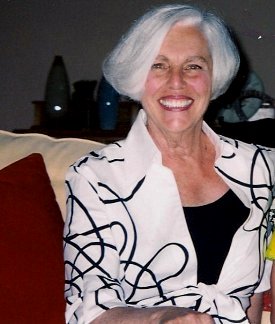 Anyone who has ever had to deal, firsthand, with the affects of Alzheimer’s disease, knows how it slowly robs the person affected of their heart and soul.
Anyone who has ever had to deal, firsthand, with the affects of Alzheimer’s disease, knows how it slowly robs the person affected of their heart and soul.
According to the Alzheimer’s Association, Alzheimer’s disease is a progressive and fatal brain disease that affects as many as 5.3 million Americans. “The disease destroys brain cells, causing problems with memory, thinking and behavior severe enough to affect work, lifelong hobbies or social life. Alzheimer’s gets worse over time, and it is fatal. Today it is the sixth-leading cause of death in the United States.”
I’ve written about Sue Adams before. Her sense of duty, respect and compassion for her community’s homeless is legendary. Now, however, Sue is facing the crisis of a lifetime in caring for her husband, Sam who was diagnosed with Alzheimer’s several years ago.
In a 2006 tribute, a local newspaper wrote: “[Sue] learned not to make her life dependent on [Sam]. He worked long hours as a coach, and summers often found him traveling overseas. He was coach of U.S. decathlon teams on three trips behind the Iron Curtain during the ‘70s. In 1982, he was head coach of the entire U.S. men’s track team in a historic meet at Karl-Marx-Stadt, East Germany.
“I was not going to sit at home drumming my fingers on the dining-room table, waiting for Sam to come home,” Sue said. She became a businesswoman and community volunteer.
“[Sue and Sam] met in Santa Barbara, when Sam was a graduate student at UCSB, and got married in 1959. They had a daughter, Wendy, and a son, John. Wendy was physically challenged from birth. Her life was a struggle, but she managed to get through school and land a job. She died in 1995 at the age of 34.
“‘That was a bump in the road for Sam,’ Sue said. ‘He doesn’t like staying with pain. He puts things behind him really quickly. He gets right up and keeps running.’
“She could only admire her husband’s steadfastness and dedication to his job.
‘[Sam] just doesn’t quit.’
“His determination was fueled, [Sue] said, by disappointments. He might have gone to the 1956 Olympics as an alternate with medalists Milt Campbell, Rafer Johnson and Bob Richards, but he fell short by one point in the U.S. decathlon trials. ‘He missed the Olympics by inches,’ Sue said. ‘He missed being an Olympic coach twice by close decisions. Those were bitter pills to swallow.’ But with Alzheimer’s closing in, his grudges vanished. ‘Sam was a contrarian, but now that edge is gone,’ Sue said. ‘His anger has faded. Now his focus is on being a friend and communicating.’”
Sue, along with millions of other caregivers and family members around the country must go into battle on a daily basis. Armed only with medications that slow the progression of the disease, Sue must adapt and develop new strategies, sometimes on a daily basis, to deal with Sam’s many mood changes and physical needs.
Worse yet, she must cope with the growing emotional toll of watching a man with whom she has spent a lifetime working, playing and raising a family slowly slide downhill first into anger, then into a progressive loss of memory, thinking and finally death.
Throughout it all, Sue remains strong, resolute and dedicated to the task at hand. Her example makes a difference in all our lives. And for that, I can’t think of a better role model of caring and compassion than my friend Susan Adams.
Comments










